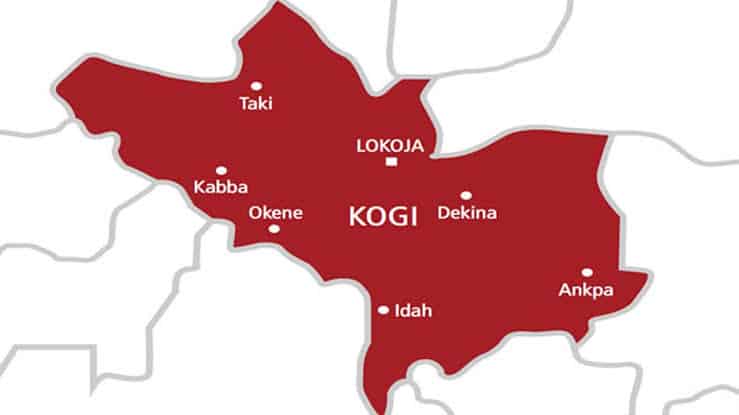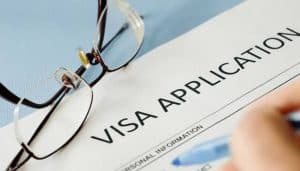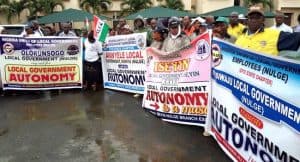
The Kogi State Government’s efforts to maximize state’s revenue collection by doubling the income stream from taxes would harm some businesses in the state. Considering the epileptic nature of the nation’s economy, the effects of multidimensional layers of taxes on businesses should be considered.
According to the information by the state’s Internal Revenue Service, taxes are collected to ensure free education and healthcare. It states on its website: “The taxes that we pay are what enable the lesser privileged many to get a good education and healthcare that they cannot afford themselves.” However, the state government’s multiple taxation of private schools is putting the future of these schools in jeopardy.
In an interview with Comrade Jimoh H. Abraham, the Chairman of the National Association of Proprietors of Private Schools, Kogi central chapter, explains the devastating effect of the policy, which is a significant challenge facing private educational institutions in that part of the state. Abraham lamented that while he acknowledged the civic responsibility of every citizen to pay their taxes, the government’s revenue policy however, has become an enormous burden on private school owners, and the multiple taxation policy is making it challenging for them to operate effectively.
Abraham said: “The only revenue payable by private schools before the advent of this present administration is Personal Income Tax of School Director (PIT) which we sometimes negotiate with them to a minimal and affordable amount, and we make payment without any iota of stress.” However, since the present administration emerged with its maximum revenue generation agenda, private school owners have not been finding it easy to operate effectively as a result of the multiple taxation.
“Private School Venture is now a feeding ticket where school directors find it difficult to pay staff salaries, meet up miscellaneous expenses and to embark on any useful developmental project,” said Abraham.
As it stands, the multiple taxes imposed on private schools include Personal Income Tax of School Director, Pay as You Earn of staff, grand rent on school buildings, registration of business premises, tenement rate to the local government, fire rate, water rate, signage tax, environmental levy, and payment of regulated premises. The state government has also established an enforcement team that, after giving short notice to any payment-defaulting institutions, commences the closure of the school.
Kogi state is not an industrialized state, meaning that its inhabitants are mostly salary earners. Meanwhile, if private school owners are to increase the number of schools to enable them to cover these expenses, the parents of the pupils and students will be at the receiving end. Abraham pleaded that the state government should consider private schools which have always been an establishment that provides social service to the people, thereby reducing the taxes to minimal.
Private Schools Fulfill Affordable Education for All Agenda
Mr. Ibrahim Alimiyau, the bursar of Moral Glory Group of School, Nagazi-Eba, explains that the multiple taxes levied on private schools have hampered the quality of education in the state. He further explained that the few schools that manage to meet up with paying the tax do so at the expense of the welfare of their staff.
“This, of course, affects the quality of education in general…Lot of these schools are struggling to pay staff salaries while some that manage to meet up do so at the expense of poor staff satisfaction,” said Alimiyau.
A study by the National Bureau of Statistics (NBS) in collaboration with the United Nations Children’s Fund (UNICEF), revealed that Nigeria had a total of 13.2 million out-of-school children, with the highest number in the northern region of the country. The study also showed that poverty was a major factor contributing to the high rate of out-of-school children, with many parents unable to afford the cost of education.
Private schools have been instrumental in providing education for many children, and keeping the population at the government schools moderate. However, if private schools respond to the tax policies with tuition fee increments, the Kogi state’s multiple tax policy could chase away thousands of students from private schools. The consequence is overcrowded schools or pupils who might be discouraged and drop out of school.
The situation is not unique to Kogi State. Private schools in other states across the country also face multiple taxations and other regulatory challenges. These challenges have contributed to the high rate of out-of-school children in Nigeria, which has become a source of concern for the government and other stakeholders.
President of the National Association of Proprietors of Private Schools, Yomi Otubela, called on state governments to recognize the role of private schools in providing education and to reduce the burden of multiple taxes on them.
He said: “We pay radio and television levy, parking fees, merriment levy, even when we are having career day for our students, fumigation fee, which they insist must be done with them, annual renewal fees, which may be as high as N500, 000. We see this particularly as extortion because we believe such should be paid maybe once in five years, not for revenue generation but for maintaining standard in these schools.
“Apart from radio and television levies for school buses, we pay levies for loading and offloading of children. There is also what is called “all local government fees’ by school buses, which is N100, 000 per bus. So, if a school has five buses, such a school will pay N500, 000.”
Private schools are an important part of the education system in Nigeria, and their contributions cannot be overemphasized. Without them governments would be unable to keep the hope of education for all alive. This is why it is important for governments at all levels to support and encourage their growth and development, rather than regulating them out of existence.







1 thought on “Kogi Multiple Tax Policy Hurts Private Schools”